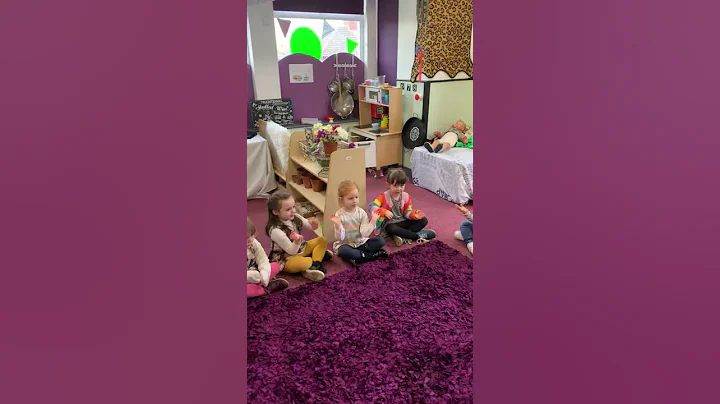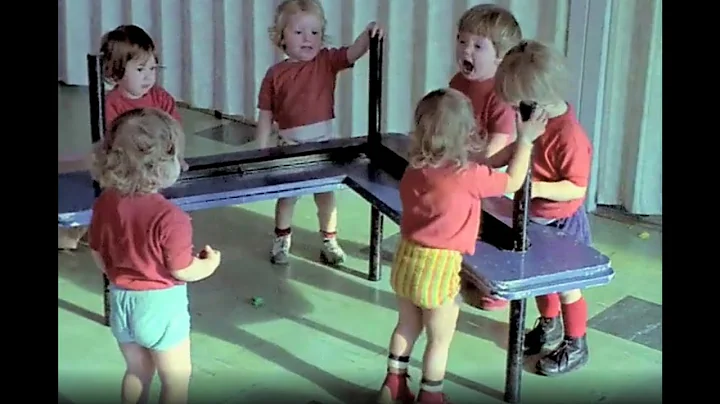Dongdong is 10 years old this year. Last winter, Dongdong's parents discovered that Dongdong always blinked his eyes inadvertently, and very frequently. He often chewed his fingers while doing homework, and sometimes made some strange sounds in his throat.
At first, Dongdong’s parents thought that their child was inattentive or deliberately mischievous, and they scolded Dongdong several times. But later, Dongdong’s “little actions” became more and more frequent, and they realized that something was wrong. I took Dongdong to the hospital for treatment and was diagnosed with " tics ".
Many parents don’t know much about tics. What are its symptoms? Can it be cured? Let’s talk about tics today.

What are the symptoms of tics?
Tics, also known as tic disorder, also known as facial muscle twitching and vocal cord twitch syndrome, is a neurological disease.
Tics mostly occur in children and teenagers, especially in children aged 4 to 12 years old.
The main symptoms are: sudden, repetitive, non-rhythmic and rapid involuntary muscle twitching in any part of the body. Some people will also unconsciously make a strange monotonous sound during the attack.
Tics can be divided into three types:
- Transient tic disorder:
This tic disorder is the most common and milder type. It manifests as simple motor tics, starting with alternating twitching of the facial features, neck, and shoulders, such as winking, frowning, pouting, showing teeth, stretching the neck, shrugging, etc.
Tics are often aggravated by emotional stress or physical illness (such as infection, fever, trauma, etc.), will decrease after relaxation, and disappear after falling asleep.
- Chronic motor tics or vocal tics:
Symptoms have affected the limbs and trunk. Symptoms occur frequently and the course of the disease often lasts for more than one year, which will affect the child's study and life.
- Vocal and multiple motor combined tic disorder:
Also known as Tourette Syndrome , children often start with slight facial tics and gradually spread to the neck, shoulders, limbs, and trunk, which can form complex tics in multiple parts, with some tics and sudden Impulsive movements, vocal tics, and motor tics coexist.
The course of the disease is slow, the symptoms are repeated, and the attacks are frequent, which has a great impact on the child's physical and mental health.

What impact does tics have on children's physical and mental health?
- Affects self-confidence
Some children’s twitching behaviors, such as frequent blinking, can easily attract the attention of parents or other children.
Sometimes inadvertent comments from parents or children can make children shy, nervous, anxious, etc., and can even aggravate tic symptoms, thus affecting the child's self-confidence.
- affects attention
When a child has tic disorder, he or she will feel nervous and anxious. In such a mental state, the child's attention will inevitably be distracted.
If a child cannot concentrate on listening to classes and doing homework, it may affect his or her learning status over time.
- Affects motor function
Children with obvious tic behavior may interfere with the continuity and integrity of the movements when completing some complex movements, resulting in the inability to complete many movements, especially some fine activities.
In addition, tics will have a certain impact on movement coordination and accuracy.
- Affects social ability
When a child loses self-confidence, decreases concentration, and is affected in movement due to tics, these will make the child more emotionally unstable, and even become grumpy and nervous.
Over time, children will also have some obstacles in social interaction, and even avoid social activities.
What should parents do?
90-95% of children's tic disorder will gradually improve or disappear with age, so in normal times, parents can do this:
- "Turn a blind eye" to their children's tic behavior
We parents all attach great importance to the physical and mental health of our children. Parents pay special attention when their children have some abnormal behaviors.
These concerns remind children that there is something wrong with their current behavior.
They will pay more attention to whether they have tics, which will affect their normal life and study.
Therefore, we parents must learn to "turn a blind eye" to our children's tic behavior, find the crux of the child's psychology, help the child make progress little by little, and the tic behavior will gradually improve.

- Maintaining good living habits
Maintaining good living habits can make children more confident.
Some children with tics will have abnormalities in their blood lead and trace element tests. These are related to the children's unhealthy living and eating habits.
Pay attention to a balanced diet, adhere to a light diet, and eat more highly nutritious and easily digestible foods, such as eggs, milk, fresh fruits and vegetables, etc.
In addition, appropriately increasing outdoor sports activities, such as running, playing badminton, etc., can improve children's physical fitness on the one hand, and on the other hand, children can enhance their self-confidence through exercise.
When a child's tics are severe enough to affect life, the child should be taken to the hospital promptly for comprehensive evaluation and comprehensive treatment by a professional doctor. In addition, if the child's tics are caused by other physical diseases, these physical diseases must be treated in time.
To sum up, you don’t need to worry too much about most tics. Helping children make psychological adjustments can basically improve them. Therefore, if you find that your child has tics, parents should not be too anxious, nor should they be too eager to make their children improve and criticize and scold their children for their "little actions". On the contrary, it will make the children overly nervous and aggravate the condition.











![[Source: Jiangxi Internet Radio and Television Station_Ganzhou Culture and Education] Carry out red education and inherit the red gene. In order to let children understand history and cultivate patriotism, recently, the No. 2 Nursery School of Zhanggong District and the No. 17 Nu - DayDayNews](https://cdn.daydaynews.cc/wp-content/themes/begin/img/loading.gif)









